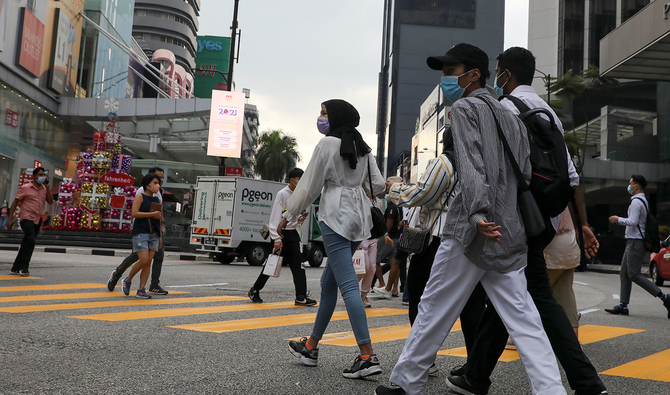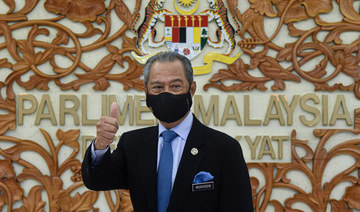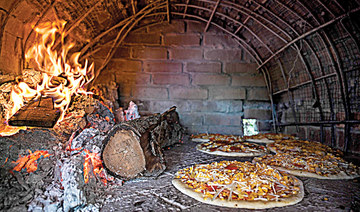KUALA LUMPUR: Malaysian employers on Monday expressed their shock and anger over the government’s decision to impose a $12,277 fine for each foreign worker found to be living in overcrowded lodgings.
A number of company bosses said they were in a race against time to fall in line with the new criteria and avoid being hit with heavy penalties.
“Although many employers are rushing against time to fulfil the requirements, one of the main challenges industry players face is with the local councils,” Soh Thian Lai, president of the Federation of Malaysian Manufacturers (FMM), told Arab News.
He said local councils throughout the country were not prepared “to assist the industry with the required endorsements” to comply with the terms of the Employees’ Minimum Standards of Housing, Accommodations, and Amenities Act 446.
“This has led to the main reason for the delay (in providing more space for migrant workers),” he added.
The decision came as a surprise after the Human Resources Ministry (HRM) had set March 2021 as a deadline for all industries to comply with the act which requires employers to ensure that their workers had sufficient residential space.
Malaysian government minister, Ismail Sabri Yaakob, announced last week that the penalty would be imposed from Nov. 26, sending shockwaves through businesses.
Soh said to provide housing facilities for each worker, employers were being forced to create additional space.
“There is, however, a lack of suitable accommodation as there are limited hostels available. Converting shop-lots to dwelling space will take time and costs to renovate the space according to the specifications outlined in the regulations as well as meeting other requirements by local authorities,” he added.
Act 446 was fully implemented in September this year after the country’s parliament amended the previous jurisdiction which only covered housing aspects of more than 20 acres of the plantation and mining sector.
The new amendment, however, extends the rules to all employment sectors that provide housing for workers.
“Most companies are currently juggling their operations toward business recovery while trying their best to adhere to this legislative requirement to readjust the living quarters for their workers,” Malaysian Employers Federation (MEF) Executive Director Shamsuddin Bardan told Arab News.
Shamsuddin said that “the spike in (coronavirus disease) COVID-19 infections at a workplace involving foreign workers may have triggered the government” to call for the full compliance of Act 446 with immediate effect.
While the government “needs to contain the new infections” among foreign workers, it was also important to “assist employers,” he added.
“Many employers still depend on various government assistance, such as wage subsidies, to remain in business.
“It was only introduced on Aug. 30 and the government then decided to enforce the act in November, so the lead time given to employers to fully comply with the act was too short.
“It is costly to upgrade accommodations on the backdrop of a decreased cashflow from the COVID-19 pandemic,” Shamsuddin said.
Soh said Minister of Human Resources Saravanan Murugan had acknowledged some of the challenges involved and agreed, in principle, to a more educational approach for enforcement of the act.
“Following several taskforce meetings with the ministry to address compliance to labor laws by industry in recent months, it has been agreed that given these challenges, including the challenges faced due to the COVID-19 pandemic, industries would need some time to make the changes and improvements to the housing facilities,” he said.
The FMM said it had written to the government and reiterated a previous request “for a 12-month grace period, without the imposition of any immediate penalty.”
Meanwhile, Malaysian Rubber Glove Manufacturers Association (MARGMA) president, Supramaniam Shanmugam, told Arab News that 59 members of the association had expressed concerns over the “lack of time” to comply with all the requirements of Act 446.
“The Act 446 talks about the welfare of workers and one of the items to fulfil are the certificate of accommodation, which is done online, and our members have been advised to apply for it. So, what we are asking for is time,” he said.
MARGMA represents rubber glove manufacturers and employers, including leading industry players such as Top Glove and Supermax.
The HR minister and government labor department were both unavailable for comment.
The Malaysian director general of health, Noor Hisham Abdullah, recently called for employers to adhere to Act 446 “as a matter of public safety,” adding that “infections involving foreign workers needed to be addressed. The Ministry of Health urges employers to play a bigger role in tackling it.”
On Tuesday, Malaysia reported more than 1,200 new COVID-19 cases, adding to the national caseload of 65,697 infections.
According to the World Bank’s estimate, Malaysia houses at least 3 million foreign workers and is the sixth-largest migrant-receiving country in East Asia.
Indonesian workers make up to 39 percent of the total migrant workers population, followed by Nepal and Bangladesh at 24 and 14 percent, respectively, according to a report published in August by the Southeast Asia office of the Heinrich Boll Stiftung foundation.
Foreign workers in Malaysia are restricted to low-to-medium skilled industries such as construction, services, plantation, agriculture, manufacturing, and domestic work.




























